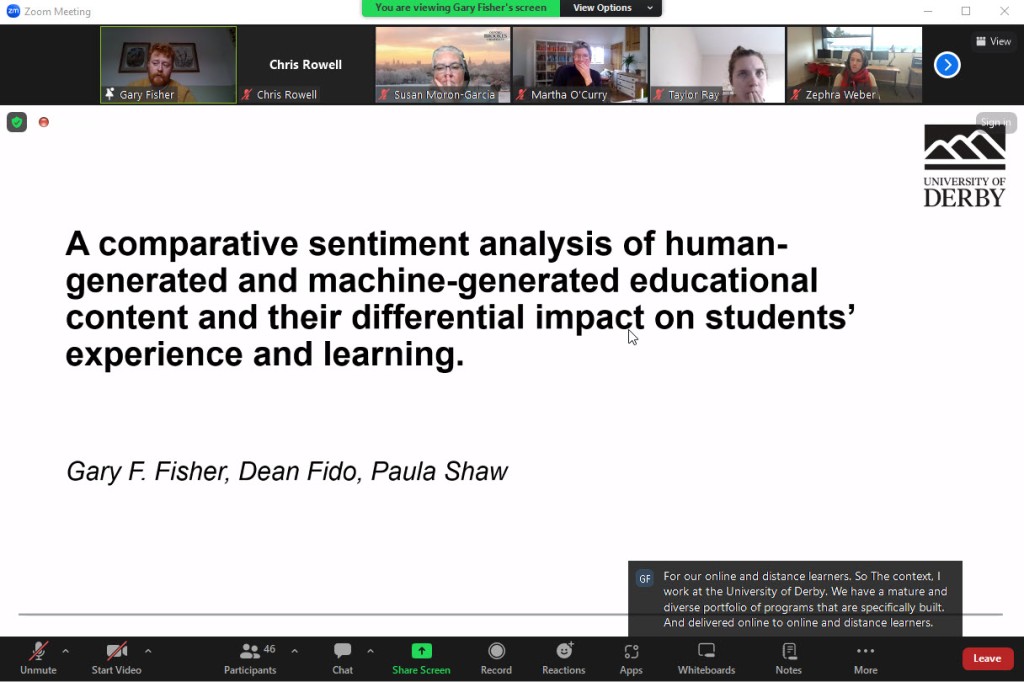Tags
Here is a summary of a webinar given today by Gary Fisher from Derby University from the series ‘Teaching Across the Globe’ on ‘Using generative AI for creating learning materials’. The text was entirely generated from AI. I downloaded the Zoom transcript and uploaded it to Claude which then wrote the summary. (I had to miss the last 10 minutes as I had a tutorial to go to).

The document is a transcript of a webinar presentation by Gary Fisher on using generative AI to create online learning materials. Fisher works at the University of Derby, which has a large portfolio of online and distance learning programs. A key component of these programs is asynchronous online content – teaching materials posted on the virtual learning environment for students to access anytime.
Fisher conducted an experiment comparing a piece of human-generated online course content that went through the university’s rigorous multi-stage production process, to a piece of content generated by ChatGPT with prompt engineering. He iteratively provided prompts to ChatGPT over a lunch break to produce AI-generated content explaining the same concepts as the human-generated content.
The two pieces of content were analyzed using Loop22 for psycholinguistic analysis and via a student survey on Prolific. Loop22 suggested that while analytic thinking and confidence levels were similar between the two texts, the AI text exhibited greater authenticity and more positive emotional tone. The student survey also found more favorable judgments of the AI text over the human text. Interestingly, when students were told the AI text was human-generated, their perceptions improved even more.
Fisher notes some limitations – the study has not undergone in-depth qualitative analysis with student focus groups, and the content has not been evaluated for accuracy by subject matter experts. He suggests further analysis on what academics think of AI-generated course content.
Ultimately, Fisher concludes that with the right prompts, ChatGPT can produce content resembling online course materials in a much shorter timeframe than humans. But he still believes AI will augment rather than replace academics, envisioning an eventual process where humans utilize AI tools but still quality check output. The study provides an early experimental evaluation of AI capabilities and impact on student perceptions in a narrow test case, but perceptions and AI system abilities will continue evolving.
